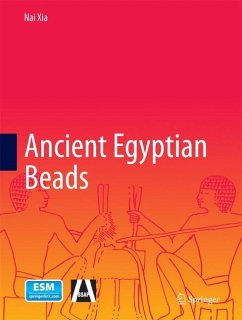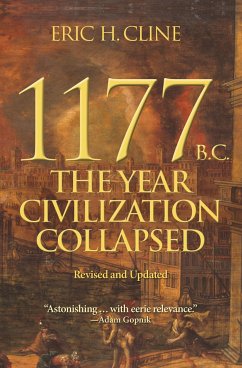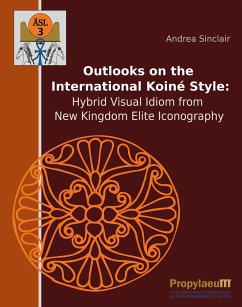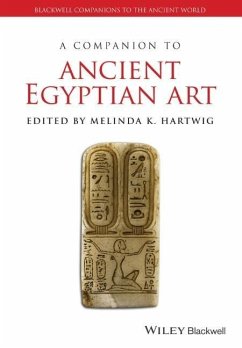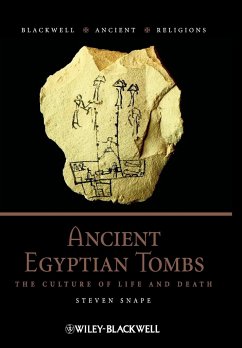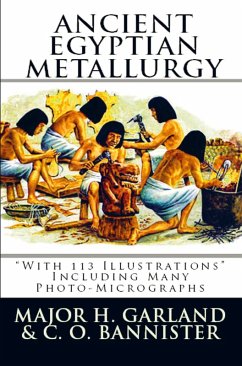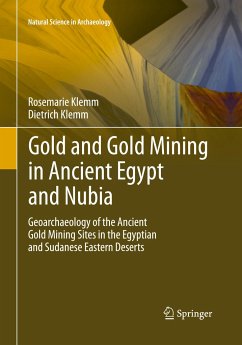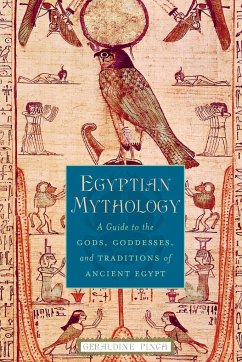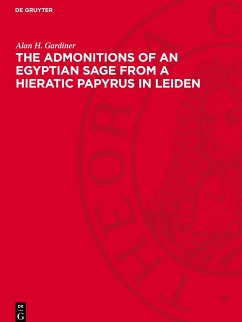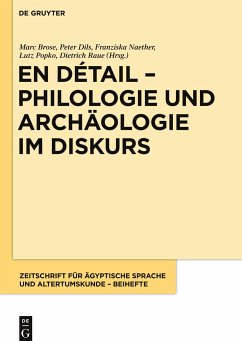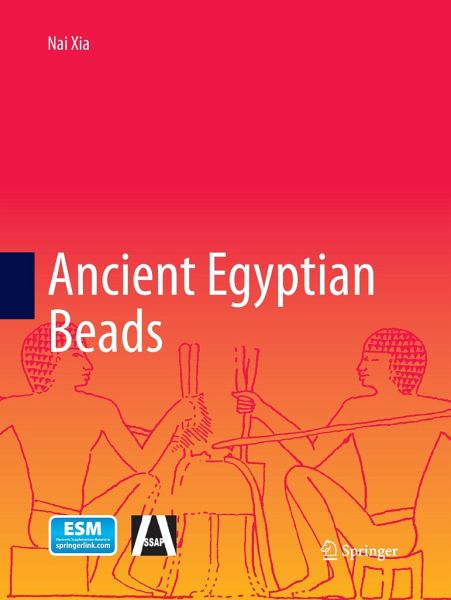
Ancient Egyptian Beads
Versandkostenfrei!
Versandfertig in 6-10 Tagen
91,99 €
inkl. MwSt.
Weitere Ausgaben:

PAYBACK Punkte
46 °P sammeln!
This book presents a detailed analysis and thorough study of the unique collection of Ancient Egyptian beads in the Petrie Museum of Egyptian Archaeology in London.The book first discusses the archaeological value of beads and the method employed in the study of them, especially emphasizing the importance of the technique of bead-making for dating purposes. It then examines and evaluates various schemes for the classification of beads. The book goes on to propose a new classification system and works out a comprehensive corpus of beads with the aid of sixteen plates.Next, the book features a c...
This book presents a detailed analysis and thorough study of the unique collection of Ancient Egyptian beads in the Petrie Museum of Egyptian Archaeology in London.
The book first discusses the archaeological value of beads and the method employed in the study of them, especially emphasizing the importance of the technique of bead-making for dating purposes. It then examines and evaluates various schemes for the classification of beads. The book goes on to propose a new classification system and works out a comprehensive corpus of beads with the aid of sixteen plates.
Next, the book features a chronological survey that details the material, typology (including the technical peculiarities), use, arrangement and pictorial representation of beads throughout the nine divisions or periods of Ancient Egyptian history. This survey points out the characteristics of each period as well any contact Egypt may have experienced with foreign countries as shown by the beads. It also corrects much wrong identifications of materials and mistaken datings.
This book is based on the Ph.D dissertation written by pioneering Chinese archaeologist Xia Nai when he studied in London College University some 70 years ago and who had direct access to considerable firsthand resources at the forefront of Egyptology research. It represents a crucial and long-awaited advance in archaeology, not only for Egypt but for the study of the past across Africa and beyond.
The book first discusses the archaeological value of beads and the method employed in the study of them, especially emphasizing the importance of the technique of bead-making for dating purposes. It then examines and evaluates various schemes for the classification of beads. The book goes on to propose a new classification system and works out a comprehensive corpus of beads with the aid of sixteen plates.
Next, the book features a chronological survey that details the material, typology (including the technical peculiarities), use, arrangement and pictorial representation of beads throughout the nine divisions or periods of Ancient Egyptian history. This survey points out the characteristics of each period as well any contact Egypt may have experienced with foreign countries as shown by the beads. It also corrects much wrong identifications of materials and mistaken datings.
This book is based on the Ph.D dissertation written by pioneering Chinese archaeologist Xia Nai when he studied in London College University some 70 years ago and who had direct access to considerable firsthand resources at the forefront of Egyptology research. It represents a crucial and long-awaited advance in archaeology, not only for Egypt but for the study of the past across Africa and beyond.





